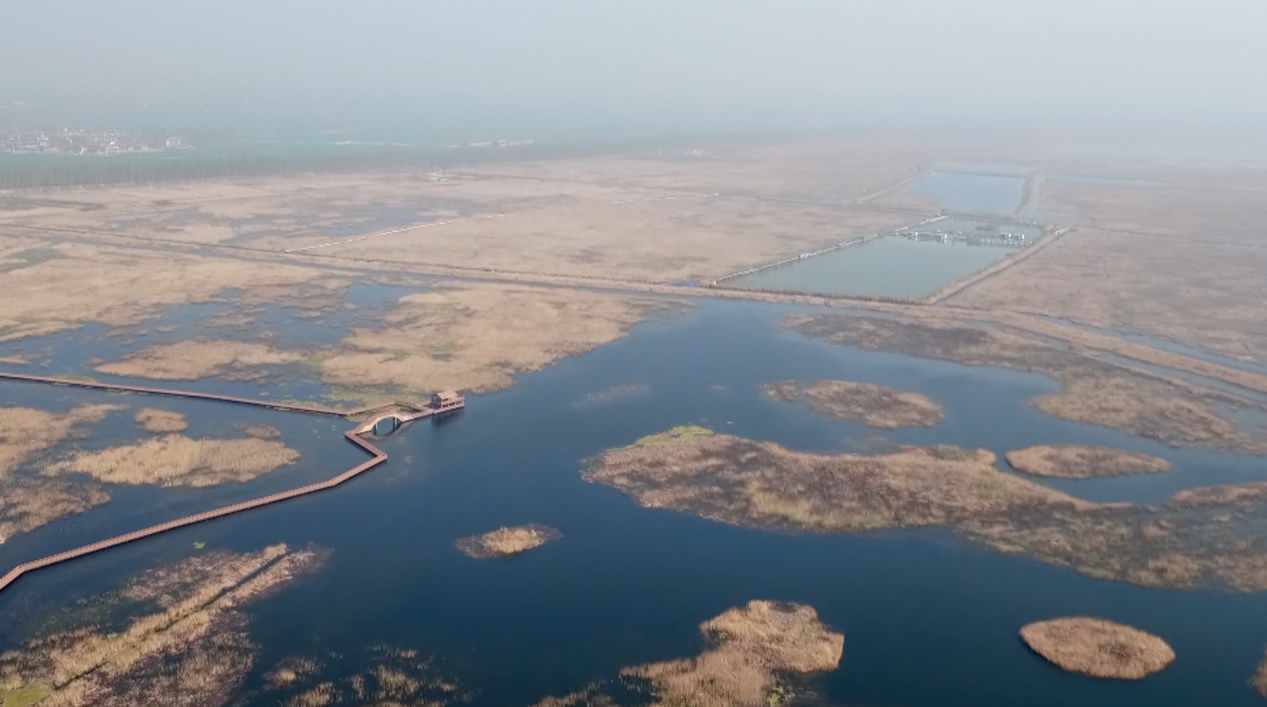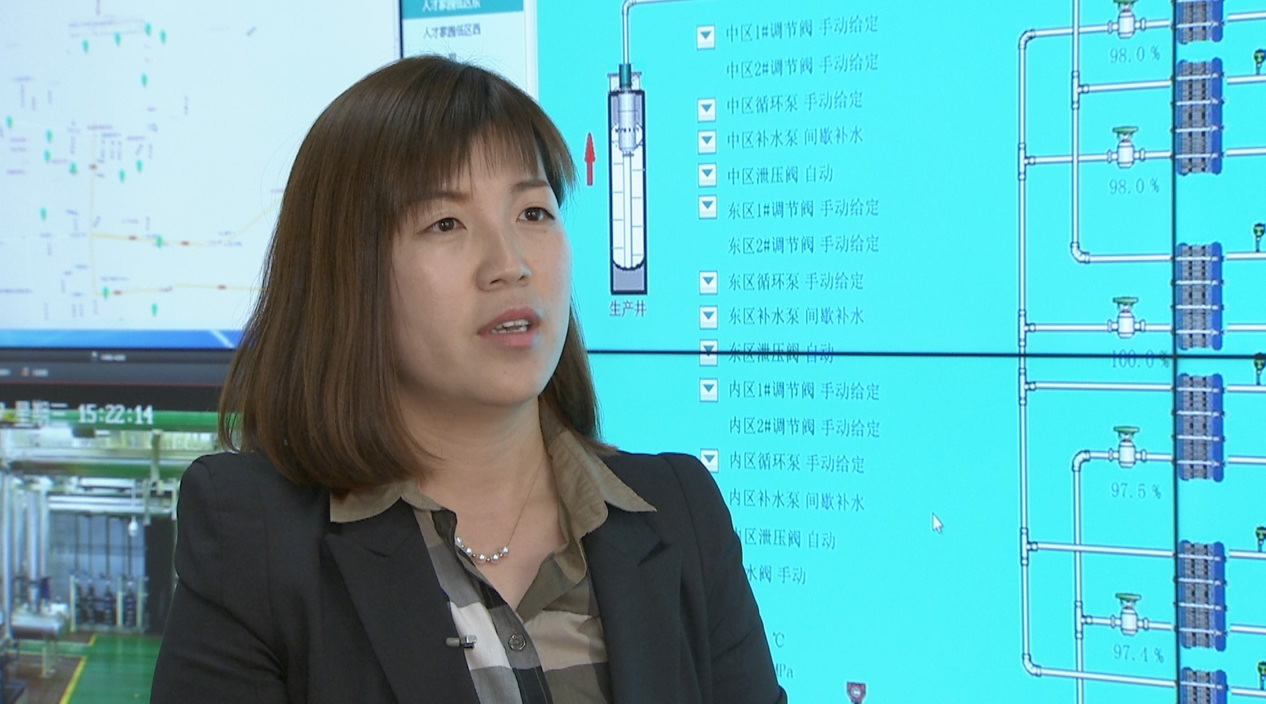By CGTN's Ning Hong
A new major economic zone is to be set up near Beijing in north China's Hebei Province. The planned region, named the Xiongan New Area, will help phase out non-capital functions from Beijing, and will carry the hope of becoming a model for Chinese modern cities. One of the challenges it faces, though, is wetland preservation as in the middle of it lays the largest freshwater reserve in Hebei Province.

Bird’s view of Baiyangdian lake. /CGTN Photo
More than 140 lakes, covering 360 square kilometers.... The Baiyangdian wetland is the largest freshwater expanse of water in north China. It is also in the middle of the newly established Xiongan New Area, composed of three neighboring counties. The protection and preservation of the wetland has become a major challenge.
Bird's view of Baiyangdian
The Baiyangdian Lake is a pearl on the North China Plain. It boasts of vast natural resources such as fresh water and plenty of wildlife.

CGTN Photo
Wang Xiaoye is an environmental protection activist. He has been promoting the protection of birds in the wetland. He is happy to see the New Area formed, yet he has some concerns: “The protection of the wildlife will be enhanced and better coordinated. Yet I worry that more construction may damage the environment here.”
The announcement of the new area on Friday stressed that the area should prioritize the wetland’s preservation. Wang is hoping that he could participate more in the environmental assessment process in future projects.
In the meantime, the use of green energy is also improving. As this new area is located upon one of the largest geothermal reserves in north China. Geothermal energy in this area has replaced coal as the major energy source to provide heat in winter.
Qian Zhangtun lives in Xiongxian county, one of the three counties that was designated as part of the Xiongan New Area. The heat for his apartment is provided by a geothermal well. “We used to burn coal for heating in winter, about seven to eight tons a year. It has a lot of smoke and is expensive. Using this geothermal system, our expenses have been reduced by half," Qian said.
The Geothermal heating project belongs to Sinopec, one of China’s top state-owned oil companies.

Sun Caixia, Chief Technical Officer of Sinopec green energy geothermal development co. /CGTN Photo
Sun Caixia is in charge of projects here, including 68 geothermal wells and 36 heat exchange stations. In all, they provide heat to some ten thousand people in the county. For the past eight years, they have helped reduce nearly a million tons of coal consumption. “We are providing heat to almost the entire county. It is a coal-free region now," Sun said.
As the Xiongan New Area takes shape, the environment in here is key to its future.
111km
Related stories:










